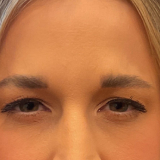Episode 84: The Future of Plastic Surgery and AI with Dr. Patel
Join us as we delve into the fascinating world of plastic surgery and the transformative potential of artificial intelligence (AI) with Dr. Franco, Dr. Arredondo, Dr. Chang, and our special guest Dr. Patel, the visionary founder of advital – the revolutionary lead management system.
We are in the age of Artificial Intelligence. By utilizing AI, your experience as a patient will be positively impacted. You will no longer be confined to the 9-5 business hours. Ask questions, schedule appointments, and more any time you want!
AI-powered content and chatbots have the potential to revolutionize the patient experience, making it more efficient and accessible. Tune in to this thought-provoking episode to gain insights into the future of plastic surgery and the groundbreaking role AI will play in shaping the industry. Don’t miss this opportunity to discover how these innovative tools are set to transform the world of plastic surgery and make your life easier.
Transcript:
Welcome back to Plastic Surgery Untold. This is actually a super exciting and special episode, we have a special guest, Dr. Patel, who’s actually the founder of Ad Vital, which is a lead management system. But that doesn’t even do it justice of the things that that it does in terms of educating our patients, making sure they’re prepared. But tell us a little bit about you, Ad Vital and kind of how you got started. And then we’ll actually jump into a super exciting topic, AI. I know, that’s been such a hot topic and something that that’s really passionate and close to your heart.
Absolutely. Thanks Dr. Franco. So in terms of my practice, I’ve been out in practice for six years, I’ve built a practice in terms of two locations, a surgery center and a partner as well. And I suffered through all the different pains of marketing, sales and operations. And it was out of necessity that I had to build Ad Vital. I was piecing together different softwares to do things in terms of a simplified patient flow, right, to educate them and not have to repeat the tasks that we have to in our practices. And so that’s where Ad Vital came from in terms of the messaging, the content, that we’re actually able to educate them before they even come in about all the different procedures and questions that they have.
You know, and I think that it’s been super effective for our practice. And then we rolled it out to friends and family, in terms of Dr. Franco and his practice. We’ve loved it, because our patients feel like the time they spend with us is more valuable, because sometimes it’s like shock. And they don’t even know what questions to ask, being able to send them things that is very specific to what they’re coming to see us. They feel better prepared. They feel like they already know us because we can send videos, we can send information. So then when they come in, they have very specific questions. They can be like, Hey, Dr. Arredondo, on your tummy tuck, you talked about this. I really liked this. But this part I’m not sure about, does that apply to me? And that has been priceless for our practice.
Yeah, I think it’s the self questioning, right? It’s like actually seeding the information, so the basic foundation is done. And then it’s mainly like their particular unique questions to what they actually want. Right. And that’s what helps, you know, helps us in terms of cutting down the time, and then the effort that the patients actually have to do in terms of digesting the information. Because in one consultation, how much are they actually retaining, right? You think about our lectures, our lectures have shortened down in terms of how much time that we actually go over up on stage or given a talk for an hour. Now they’re like 30 minutes, and what the optimal times, you look at podcasts are shrinking in terms of time, and all these other things. In general, I read something in an article a few years back that patients retain about 10% of what you tell them in any visit. And so when you can do that foundation ahead of time, now they’re asking targeted questions. And you know, usually they’re, they’re ready to go because like, I’ve seen this, I’ve made my decision, I just want to make sure that everything lines up with that in person consultation, and then it’s been great. Yeah. And A Vital creates it on their time, right? Because you can send them a text, email, stuff, even if they’re not available, right that second, later night, once the kids are in bed, and they’ve kicked off their shoes. They’re like, okay, let me now read this. So they have it on their time to do when it’s convenient for them.
Absolutely. It’s there on our schedule. Yeah, totally. It’s on their time, and then they can share it with their partners. Right. And so a lot of times they come in alone, but then their decision maker’s actually their partner or you know, significant other, and how do you tell them exactly what, what they want, what they’re talking about? So that’s the best way to communicate. It’s that video and.. Yeah, I trust them. Right, it’s building that know, like, and trust kind of factor beforehand, so that, you know, it’s a big deal to have somebody actually operate on you. Because it’s one of the things that’s been been passionate for us is, is educating patients, because I feel like them being able to make the best decision, you know, leads to happiness for us, for them because they know exactly what they’re getting. And you know, one of the things that we’ve loved about social media, and I think Ad Vital has taken us to the next step of this is that we’ve tried to take out this magical black box of plastic surgery that we kind of all grew up with, nobody talked about it, nobody kind of knew anything. You come into the secret consultation with your hoodie and glasses on, and then you magically come out of something else. But nobody really knew what happened in those three months in between. Yeah, it’s like that taboo period, right? So it’s like, oh, well, what should I expect? You know, where are these boards? These message boards, I think real self data, you know, does a real good job of like going through some of the ups and downs and people? Is this swelling? Normal? Where’s, What should I expect at this point, time point, and this and that? But now like with us actually educating them privately on their phones, right?
It also helps show them the actual before and afters, what you should expect one week, three weeks, six weeks, six months, a year, you know, and then they can make a better, their anxiety’s less, right, it’s actually, decide on going through with the process and the actual procedure. And then the whole process. For me, I always find, you know, just with anything I do, the more I understand it, the more comfortable I am with it. And I think it’s the same for patients. And I always try to have that same understanding conveyed to them that way, you know, they’re just comfortable. The anxiety is down. I feel like the recovery is better. They’re not surprised by anything. Absolutely. It’s like treating them like family, right? So it’s like, if we have that one on one conversation, like if we had the time, we would spend as much time as we could to educate our patients. But this allows that time because you’re actually giving them that education upfront naturally, they get to know you better but, right, like what’s important for you? There’s, every provider has their own own brand, right, and have that personal brand is also the piece that I think Ad Vital does help each one of these practices, because it’s hard to say, hey, well, what’s the difference between Dr. Franco’s practice, Dr. Patel’s practice, what what are the little nuances? What do they specialize in? And what do I need to go to this person for versus somebody else’s.
Everyone’s kind of niching down, and then catch us up. And I’d love to get Dr. Chang jump in here because he’s actually board certified in medical informatics as well. So YouTube may leave us behind. And hopefully we’ll understand what you guys are talking about. But artificial intelligence, chat GPT, these things have been so hot on anybody who follows any of the technology forefront. And unfortunately, even if you don’t follow the technology forefront, it is here and it’s gonna affect your lives one way or another. But something you’ve definitely worked on integrating, been on the forefront about, and and we’re trying to keep up with you. Yeah, no, absolutely. And so in terms of content, right, and so the game in terms of is media and content and brand. So how do you build your brand, your brand voice in terms of that. Chat GPT is an unbelievable tool, because it can take all the stuff that you’ve written, and it can write like you, right, and so that’s one piece of like writing like you and shooting the content. The other stuff is like creating, you know, different visuals, right? So for social media, it’s the visual plus the content, the copy, and that part of it. So in terms of those skills, if you’re not practicing them all the time, you know, it’s hard to really get really good at and it’s, you know, starting from a blank page, versus hey, what are the 10 most common questions for a BBL?
Right. And so if you knew those questions, you know how to answer those, right. But sometimes it’s getting hard getting off the blank page to then make the content. So I think that’s where that content AI helps. I think in terms of the messaging, in terms of the emails, the marketing, all that part of it that go into building a practice and a brand are key, right? And then what would you say in terms of other uses that you guys seen? Oh, gosh, I think I think I think we’re just probably touching, touching the tip of the iceberg. I actually, and I, you know, I definitely don’t claim to be an expert in AI by any means. I do have a little bit of familiar familiarity with data, data analytics, and how that world you know, things, how that world of things work, excuse me. But I actually attended a session just yesterday, where this topic was brought up. And it was in this regard to in the in the spectrum of marketing and brand management, and so forth. And I think the the sort of salient points that I took away from that is one, that we’re just touching the surface, but two, in the future, it’s and I think you’ve already really started to address this in earnest with your company here is that it’s really going to be about how we utilize the tools moving forward in the future, and who best is going to be able to capitalize on that. Because you’re absolutely right. I mean, this stuff is already happening, it’s in process, it’s happening probably faster than any of us are really aware of. And it’s, it’s gonna be a matter of how can we use that to our to our advantage moving forward?
Yeah, I think it’s gonna change the entire lifestyle. So the actual providers and offices, right in terms of front desk, in terms of management, you look at, you know, some restaurants right now, you call them, no one picks up, it sends you to a text message to book that appointment. Well what’s so different in medicine, right? It’s not that different, you look at people that they’re booking for massages, it’s all the online booking, they just keep driving you to the same thing, it’s the same way. I think that you know, practices will ultimately become and then patients will have a backline that actually talks to a patient care coordinator. And it might just eliminate a whole front desk position. But don’t you think it, from a pure patient’s standpoint, like how much better experience this is going to be? Because it’s going to be so much more efficient? You know, because if you trained this to answer all those common questions in a very efficient way. I mean, again, it goes to our point that people can get their information when they want it. It’s not the eight to five hours that fit our schedule, you know, if it’s 9:30 10 o’clock, when they finally get time, they can they can call our office and with some of these technology, get all those questions, you know, what do I need to do for for my bbl? Oh, sure, you know, and be able to do that I think even being able to send, you know, specific information to Dr. Chang about his procedure that fits him and just being able to better funnel it there that then people getting this this ton of massive information that’s not generalized, that sometimes becomes overwhelming for patients.
I think even the patient care aspect is going to be huge. And one of the things Kevin’s been trying to work our office with is, is efficiency in the office too, because the more efficient we are, the more streamline is for patients. None of us like to sit around and wait. And so the more efficient that office is, those, the more streamline your appointment, you’re in and out, you get what you need, but but get everything that you need. Yeah, I mean, I think the biggest scary number out there is that 40% of people want to book after hours and on weekends. Now, what part of our staff actually wants to work those hours. Right. No, we’ve been trying to get Kevin Chang to work a little bit more, but they don’t want to. *laughs*
But I mean, that’s the truth of it, right? And 60% of people want to book online. So how many, you know, healthcare is so far behind in all these, like even basic things, now that you’re adding on AI to some of the stuff? Yeah, I mean, there’s AI scheduling, that stuff that’s coming out, there’s, you know, AI, lead management stuff, there’s AI content, all these different things. I mean, that’s just on the tip of the iceberg on terms of patient efficiency stuff. I mean, there’s also, you know, also like before and afters, how close did you get? AI is coming for that, right, and saying like, how good are you, right, in terms of what you’re promising patients in terms of, you know, delivering that quality result.
And I think I just want to make sure that people understand that we’re not trying to like turn our office into a system when you call like, you know, to make an appointment for like a call from airlines, you need to change a flight and you have to push 16 buttons to get that. That’s not what we’re trying to do. We’re trying to make the service better and not not make it more difficult to get to somebody.
Right. And so the the funny thing is, when we first started our company like last year, we were part of Medtech Innovator. One of the questions we got was, hey, do these automations decrease empathy? And what we found is, when we looked at our reviews, they actually mentioned our staff more, because they got to spend more time with them, because they didn’t have to do the all the paperwork, all the repetitive tasks, all the other things. And so you see all these reviews, review after review, mentioning, you know, each one of our patient care coordinators is like, thank you so much for spending the time and it’s not always a little soft touches on the other things, because those are the things that actually matter in the process, right. The other foundational stuff, we all do. But that actual care part in terms of delivery is even more important in terms of the experience.
I sort of, I mean, I’m listening, sort of feel like our goal is to really make this a bespoke sort of experience for everybody. So you get funneled down the right channels, you can take care of the stuff that’s easily taken care of online, then when you need that personal touch, our staff is there because they’re not bogged down by the other stuff. And it just creates that special experience for patients.
Absolutely. And I think it also keeps us in tune. Right, right now like what our patient care coordinators say, and what happens is kind of behind closed doors, we don’t have any record of it. And isn’t that, Ad Vital actually provides a step by step, you know, time stamped communication. So if you know, if it’s after hours and weekends, I can see exactly what my staff had said. And if there was any issue or any problem, what concern there is, I can step in, right in terms of having that communication to actually fix whatever situation that’s going on. And I think there’s a bunch of different, like aspects of it to give that full transparency, right. And I think that before, it was just all hidden, because we didn’t have the ability to track it all.
And even the patient care side is so exciting. I think that’s a little further away. But being able to, you know, use this to help take people’s medical histories, what their goals are, and really making this individualized plan that it can take everything that would take us so hard, but it can assimilate it so fast and help them get to a great spot, like hey, here’s your weight, here’s this, here’s what we’re trying to get. That’s super exciting as well, from a patient care standpoint.
Absolutely. And I think all the documentation stuff that’s probably going to roll out in the next like year and a half is going to change everything in terms of EMRs and the way that they’re doing things right. And I think right now we have to document everything, I think everything is going to shift towards video. And if you have video records of actual visits and appointments, what do you really need to document right? You had the conversation, it’s going to have a transcription, AI can use it to document all the other pieces of it. It will save us how many hours of time, each provider, each location, how much more efficiency? How much more time can you actually spend with patients?
A ton. And then patients will have this, this record that has been you know, basically transcribed and organized, so they have stuff. So then when they need to take something to their primary care, to somebody else, it’s super easy, and they’re not going through 800 pages of sheets of just stuff that is endless, and then pearls get lost in it because it’s it’s hard to go through every single little line looking for one spot to your point, you can spend endless amount of time looking for one sentence.
Absolutely. And if you look recently in the news, right, like all these big EMR systems are integrated with open AI to actually make the process and the healthcare even better. So that’s the other aspect of it is like quality care. Right? So it’s like if you knew there’s certain patients that you know, end up with certain results or have certain complications, you can peter that stuff out with AI.
What, what last nuggets would you want to let, you know, patients and other physicians know about in terms of whether it’s Ad Vital or AI and kind of the integration of this over the next year, because I think the next year is going to be super, super exciting. And, and you’re either, I was telling somebody last night, I feel like adopting the AI stuff now is like social media eight, nine years ago, if you’re on it now, I mean, there’s going to be great success for your patients and for your practice. If you kind of wait, it’s gonna be hard later down the road, and it’s gonna be like, Oh, even having a website, like you just need it to survive.
Yeah, I think AI is a skill. If you look at it that way, of not something that’s a threat, it’s literally a skill that needs to be learned by every single person in your office. Because that’s how they can change how they adopt it in different ways. Whatever they can use AI to make their life better to actually deliver better patient care is the goal.
And then I’ll just do a personal plug, we had struggled a long time to find a management system stuff where we felt was super helpful for patients in terms of delivering information because Dr. Hernando and Dr. Chang and I are very passionate about, you know, making sure patients are educated. And that’s probably one of the things that that I’ve been super excited about, because I feel like the better better educated patients are, the better decisions they make. I couldn’t agree with you more. Look, I’m not a perfect fit for everybody. You’re not a perfect fit for everybody. And, and we want them to be in, make the right decision, because then they’re super happy. And that’s endlessly what, what all of us want here. And so being able to give them all the right tools and information to make the right decision for them, you know, is priceless to all four of us.
Yeah, I think that the whole thing about the decision, you like nailed on the head, right? That decision part is the key to what we do, right? If you can educate patients accordingly, of where they need to go to, for what procedures, and how they need to go about doing it and what they need to prep and prepare, pre and post, even with weight loss or anything else that we do in our practices, right, from even the… components, how to prepare, how to, how to make the right decisions in skincare before getting some lasers and all these other stuff. All those decision tree things give you better results. If you get better results, you have a better reputation, better brand, better like better happiness level within the practice and within our patients.
Dr. Patel, I can’t thank you enough for getting up early. I know you got a busy day. A lot of talk stuff here at ASAPS, educating people about some of this technology stuff that you’ve been on the forefront, so appreciate you taking time to come join us. Plastic Surgery Untold, greatest podcast in the world, is joined by us. See you guys. See ya.





